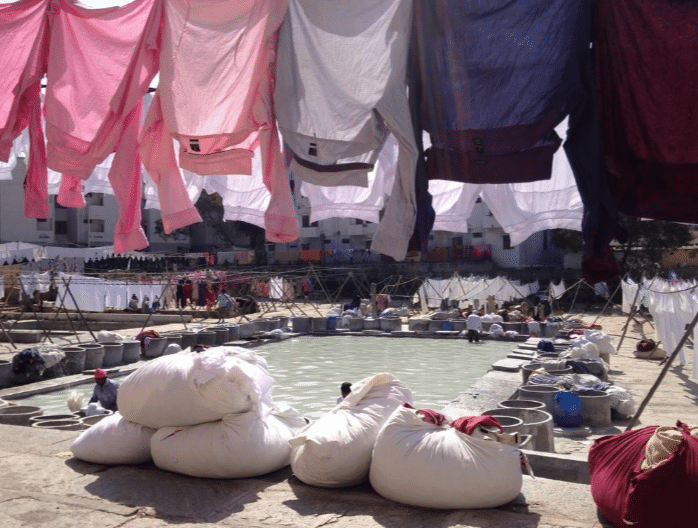
The University of Sydney Business school students were taking part in the MBA program’s International Social Enterprise Project. Project participant and part time MBA student Sarah Nguyen said Bangalore was the perfect location because “it is considered the Silicon Valley of India”.
“For me, this was personal, as I applied to the MBA with a statement of motivation addressing a mid-term goal of working in a social entrepreneurial organisation that uses technology to improve digital literacy and, therefore, social outcomes.”
The MBA team was led by 40K Group, a social enterprise that creates access to quality learning for restricted village environments. The group is known for developing a proprietary technology system that pushes educational content through tablets to school children in India and Cambodia.
“Getting away from the traditional classroom setting, we got live and practical insights of how social enterprises worked through many field trips,” Ms Nguyen said.
“One particular social enterprise, TrashCon, provided solid waste segregation machines which recycled waste into biodegradable and non-biodegradable component for 4,000 households. We were fascinated by their ambitious plans of national growth through government engagement and marketing, as well as by the practicalities of how this could change waste management behaviour long term.
“Most importantly, we met with a number of small businesses like a laundry service, florist and bike owner, all of whom had a distinctively local approach to social enterprise in explicitly addressing their needs of the community and, ultimately, overcame our theoretical learning and previous preconceptions of social enterprise.
“A key insight, highlighted by a team member, was how these businesses were able to adequately complete a business model canvas, a strategic management and lean start-up template more often used for developing new or documenting existing business models.
“During the short trip, our goal was to complete a group assignment — to select a social challenge and present a viable solution to that problem. Broad issues covered by other teams ranged from the environment, entrepreneurship and health.
“My group explored the issue of women’s rights, chiefly motivated by a recent Thomson Reuters Foundation study naming India the most dangerous place for women in the world.
“Given the social and cultural stigma associated with women’s rights, we spoke to a number of stakeholders over a number of intense and busy days. We wanted to understand the depth, complexity and interrelationships of the problem. We interviewed a range of business, government, academic, non-for-profit and end-user stakeholders; we were incredibly humbled by our interviewees’ accessibility and enthusiasm.
“This assignment has reiterated the importance of continuous and iterative customer testing for any organisation, yet alone a social enterprise. From my learning and exposure to social enterprises in India, I have ultimately learnt that there is no strict dichotomy between social and business outcomes, which I hope to integrate and emphasise both during the MBA and in progressing my career.”










